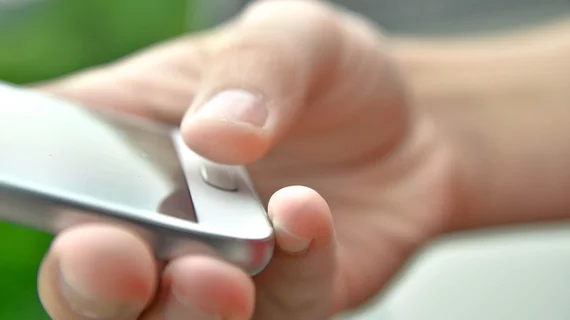Using patient data to predict COVID-19 admissions
Researchers from two Swedish universities, Lund University and Uppsala University, have found that patient data and a smartphone app can help predict COVID-19 admissions.
The app has collected information from study participants about how they are feeling since the start of the COVID-19 pandemic, and the results, recently published in Nature Communications, are promising. The app data can estimate COVID-19 infection trends across Sweden and predict hospital admissions due to COVID-19 a week in advance.
The data collected through the app was extensive, with more than 10 million daily reports from participants in COVID Symptom Study Sweden from April 2020 to February 2021. Participants reported daily, even if they were feeling well. The study aimed to develop and evaluate a framework to estimate the regional prevalence of COVID-19 using symptom-based surveillance, as well as test if the data could accurately predict hospital admissions.
Researchers were able to determine which symptoms were associated with a positive COVID-19 test based on participants’ reported symptoms and results from COVID-19 PCR tests. The model researchers developed could then be used to estimate daily national and regional COVID-19 prevalence in the entire study population––and in the Swedish adult population. Researchers also predicted with “moderate accuracy” future hospital admissions based on the app data and information on current hospital admissions.
“We show for the first time that symptom data can be informative in predicting subsequent regional trends in hospital admissions due to COVID-19, and confirm previous reports that trends in symptoms are related to community infection rates,” Tove Fall, professor of molecular epidemiology at the Department of Medical Sciences, Uppsala University, and one of the lead authors of the study, said in a statement. “These symptoms-based methods could be particularly useful in time periods and areas with low COVID-19-testing.”
The app used for the data collection was developed by ZOE, a health science company, with support from physicians and researchers at King’s College London and Guy’s and St Thomas’ Hospitals. The ZOE COVID study was first launched in March 2020 in the U.K. and the U.S., before it was adapted and introduced in Sweden in April 2020. In Sweden, the study became known as COVID Symptom Study Sweden and allowed any adult resident to download the app and provide consent. Participants filled in a baseline health survey before reporting how they felt each day. Over 209,000 Swedish adults have participated so far, offering daily reports on symptoms, COVID-19 test results and vaccinations.
“Real-time and granular pandemic surveillance requires combining multiple sources of data,” Beatrice Kennedy, research fellow at the Department of Medical Sciences, Uppsala University and first author of the study, said in a statement. “Our findings highlight how app-based symptom-based surveillance may constitute a scalable and dynamic tool to monitor infection trends, and as such it should be considered in future pandemic preparedness plans.”

